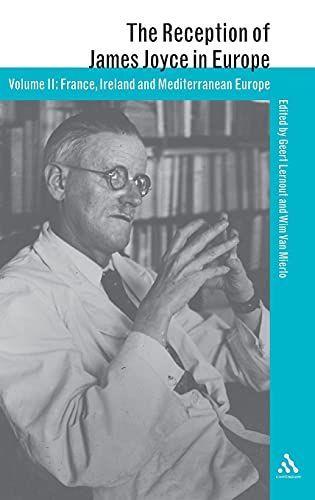
The Reception of James Joyce in Europe
James Joyce is now widely considered the most influential writer of the twentieth century. His name and his most important works appeared again and again in fin-de-millennium surveys. This is the case not only in the English-speaking world, but also in many European literatures. Joyce's influence is most pronounced in French, German and Italian literatures, where translations of most of his works appeared during his life-time and where he had a clear impact on his fellow-writers. In other countries and cultures, his influence took more time to register, sometimes after the war in the fifties and sixties, and sometimes only in the final decade of the century. This was the case in most of the languages of Eastern Europe, where the translation of Joyce's work could only begin after the collapse of the Soviet Union in the 1990s. This book contains two volumes. Series Editor: Dr Elinor Shaffer FBA, Institute of Germanic & Romance Studies, School of Advanced Study, University of London Contributors to the volume include: Sonja Basic (University of Zagreb) Eric Bulson, (Columbia University) Astradur Eysteinsson (University of Reykjavik) Kalina Filipova (University of Sofia) Marta Goldmann (University of Budapest) Jakob Greve (University of Copenhagen) Manana Khergiani (New York) Teresa Iribarren (University of Barcelona) Onno R. Kosters and Ron Hoffman (The Netherlands) Alberto Lázaro (University of Alcalá, Madrid) Marisol Morales Ladrón (University of Alcalá, Madrid) Maria Filomena Louro (University of Minho, Portugal) Tina Mahkota (University of Ljubljana) John McCourt (University of Trieste) Patrick O'Neill (Queen's University, Canada) Adrian Otoiu (North University of Baia Mare, Rumania) Miltos Pehlivanos (Aristotle University, Greece) Aleš Pogacnik (Slovenia) Jina Politi (Aristotle University, Greece) Steen Klitgård Povlsen (University of Aarhus) H.K.Riikonen (University of Helsinki) Frank Sewell (University of Ulster) Sam Slote (University of Buffalo) Per Svenson (Sweden) Emily Tall (University of Buffalo) Björn Tysdahl (University of Oslo) Tomo Virk (University of Ljubljana) Jolanta W. Wawrzycka (Radford University) Robert Weninger (Oxford Brookes University) Wolfgang Wicht (University of Potsdam) Serenella Zanotti (University of Rome)